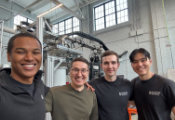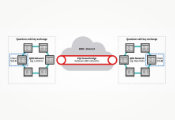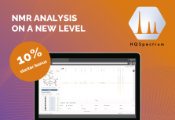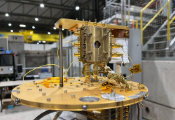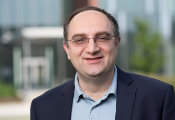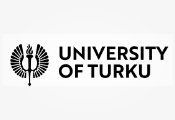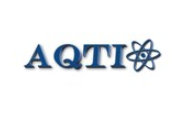A New Step in the Deployment of Ruby at TGCC, Reaching a First 35 Trapped Atoms, on Track for the Final 100-Qubit Capability
March 24, 2025 -- CEA, Pasqal, GENCI and the HPCQS project announce today a significant advancement in the deployment of its Ruby quantum processing unit (QPU) at the TGCC (Très Grand Centre de calcul of CEA) in collaboration with GENCI (Grand Équipement National de Calcul Intensif). Ruby has successfully trapped and rearranged 35 atoms, marking a key step toward achieving its final goal of 100 qubits.
The milestone is part of the ongoing development within the HPCQS (High-Performance Computer and Quantum Simulator hybrid) project, which brings together Pasqal, GENCI, and CEA in France as well as Pasqal and Forschungszentrum Jülich in Germany to pioneer the future of hybrid quantum computing. At the same time the installation of Ruby was ended at TGCC, the Jülich neutral Atom Device – JADE – has been installed at the Jülich Supercomputing Centre and is currently being validated. These achievements demonstrate the ability of Pasqal to deploy and install on end customers premises two analog quantum computers simultaneously and their readiness for integration with high-performance computing (HPC) resources.
Pasqal’s Ruby is being hosted at the TGCC, one of Europe’s most advanced high-performance computing centers. The deployment of two systems by Pasqal—at both Jülich Supercomputing Centre and TGCC—is part of the European project HPCQS, co-funded by the European HPC Joint Undertaking and supported by the France2030 investment programme for the partners CEA and GENCI and the German Federal Ministry of Education and Research for Forschungszentrum Jülich and other German partners. This collaboration aims to accelerate the development of quantum technologies and their integration with supercomputers.
Ruby’s integration with GENCI’s Joliot-Curie supercomputer, operated by CEA at TGCC, will help researchers explore hybrid computing capabilities. By combining quantum processing with traditional supercomputing, the system is hoping to enable European scientists to solve complex computational problems faster and more efficiently, unlocking new opportunities for scientific discovery.
Pioneering Quantum Use Cases
The team at Pasqal has already demonstrated several use cases on a similar quantum system that will soon be ported to Ruby. Notable examples include a collaboration with EDF to optimize energy demand forecasts for electric vehicle smart charging and an exciting partnership with Qubit Pharmaceuticals to design quantum algorithms for drug discovery.
The ongoing work with organizations like EDF and Qubit Pharmaceuticals demonstrates the growing relevance of neutral atom quantum computing in addressing some of today’s most pressing challenges.
Pasqal’s progress toward the 100-qubit Ruby system is on track, with future milestones expected to enhance the quantum capabilities available for researchers and industries alike. The HPCQS project, which is set to run for four years with a €12 million budget, will continue its integration and improvement work, culminating in the full hybridization of quantum simulators with high-performance supercomputing resources.
Europe’s commitment to advancing quantum technologies through projects like HPCQS underscores the region’s determination to remain at the forefront of the quantum revolution.

